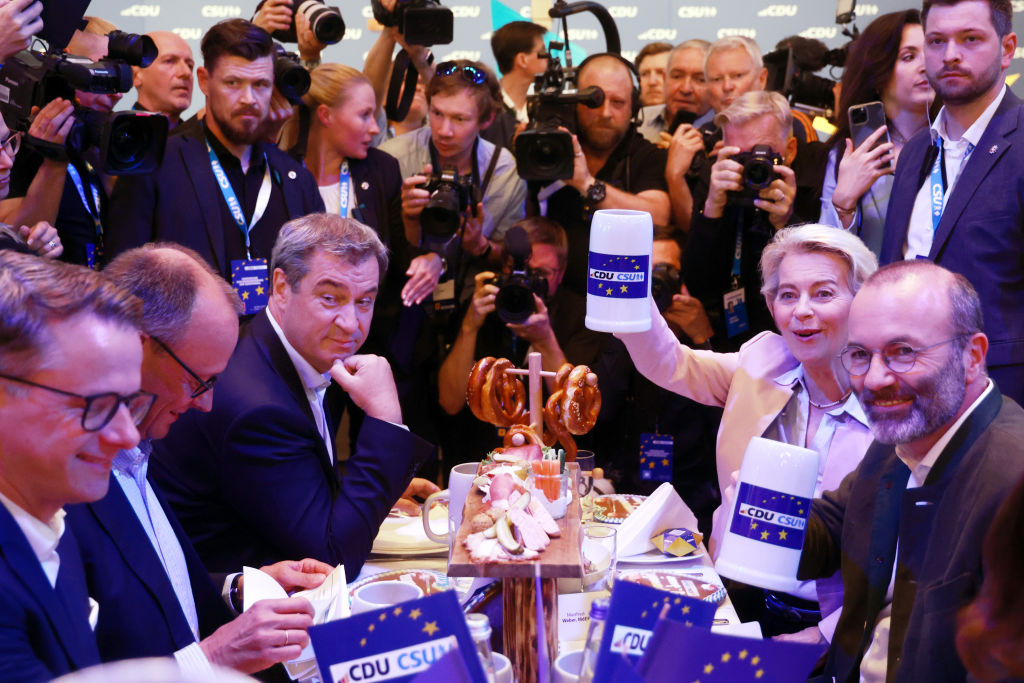Depending on whom you ask, the National Rally’s 33.25 per cent at the first round of France’s parliamentary elections were either a success or a bit of a disappointment, given that earlier polls saw the party clocking in between 35 to 36 per cent.
Le Pen’s party had a similar experience to Austria’s right-wing populist Freedom Party, which was hoping to break the 30 per cent mark in the elections to the European Parliament, but ultimately “only” became the strongest party with 25.4 per cent.
To a smaller extent, the same thing happened to the Alternative for Germany, which came in second in the EP elections, slightly behind what the polls believed possible.
This is a remarkable development, because in the past right-wing parties often outperformed the predictions of pollsters. One explanation for this is the so-called “Shy Trump Effect.” This is a modern version of a well-known phenomenon called social desirability bias, which has been recognised by pollsters for many years.
A similar instance was observed in the 1992 parliamentary elections in the United Kingdom when Conservatives performed better than the polls predicted, revealing what became known as the “Shy Tory” effect.
A related pattern has been seen in U.S. elections involving black candidates running in predominantly white districts, where polls have tended to overestimate opposition due to a higher number of voters claiming to be undecided.
For a long time, there was a “Shy Right-Winger Effect” in Europe, where more people secretly supported right wing parties and policies, but refused to reveal themselves to pollsters and friends due to the social desirability bias. Social desirability bias occurs when individuals respond to questions in a manner that they believe will be viewed favourably by others, often leading them to over-report socially desirable behaviours or under-report undesirable ones. This bias can significantly affect poll results and surveys as people may provide answers they think are more acceptable rather than what they truly believe or do.
What the recent elections in Europe have shown, is that this “Shy Right-Winger Effect” is in the process of disappearing. This means that on the one hand, right-wing parties can no longer rely on outperforming pre-election polls.
It also means, however, that their supporters are feeling less and less stigmatised and no longer hide their political preferences. This is encouraging news for the European Right, because it indicates that their views are becoming more mainstream with every election.
Yet this will also come with significant challenges, as being the voice of protest alone will no longer satisfy a voter base that does not only want to vent its anger, but also see actual changes in governance. And this will be where the rubber hits the road. Transforming protest movements into parties with competence in government is a difficult process, and not all European Right-wing parties will have the same level of success.
Another obstacle will be that an excited base will demand too much too quickly, assuming that garnering 30 per cent of the vote is tantamount to assuming dictatorial powers.
This is something that, for example, Meloni’s critics in Italy and abroad constantly miss. The Brothers of Italy are not holding a 60 per cent majority, but are in a coalition government – in a country that is notoriously difficult to govern. In order to change things, Meloni must remain in power, and in order to remain in power she has to make compromises. By doing so, however, she most likely will build a durable base for right-wing policies and lasting change within Italy’s institutions.
It has to be said, that at this point – with the exception of Hungary’s Viktor Orban who has been doing the above for over a decade – it is (Western) Europe’s female party leaders who have picked up on these developments. Both Meloni and Le Pen are not satisfied with leading a protest movement, they want to govern and fundamentally change their countries.
Luckily for them, a growing number of Europeans is beginning to agree with them. And they are no longer afraid to admit it, and vote accordingly.






US debate: even Democrats say Biden cannot go on like this